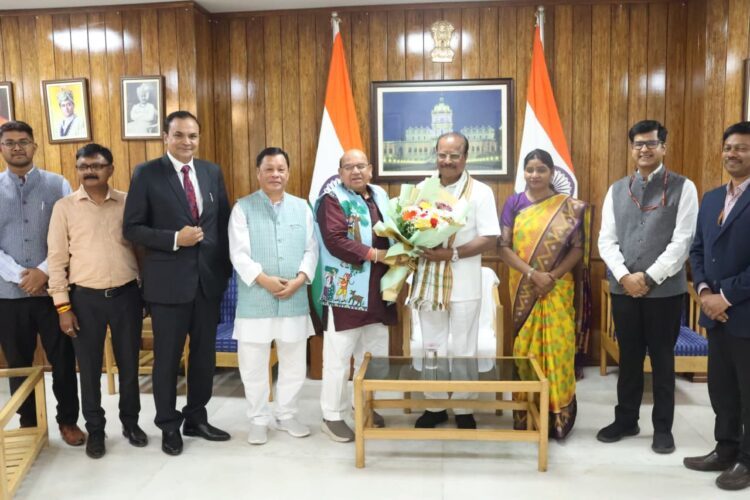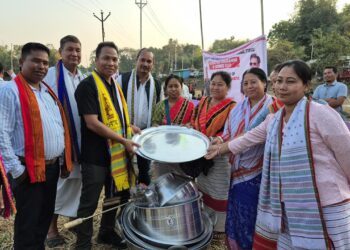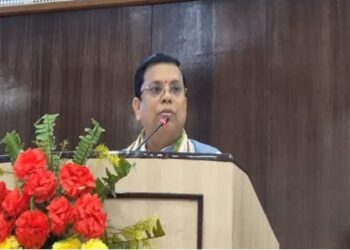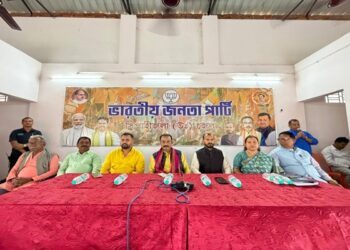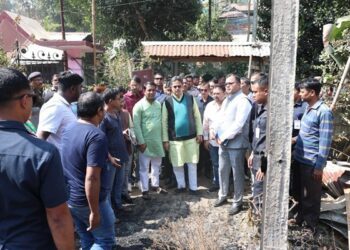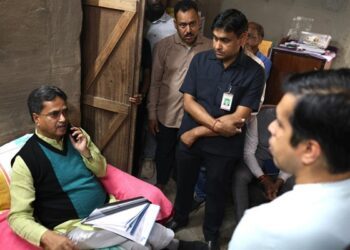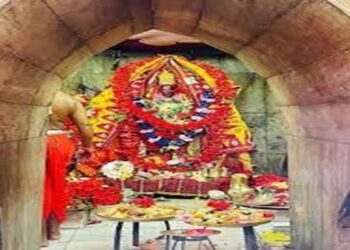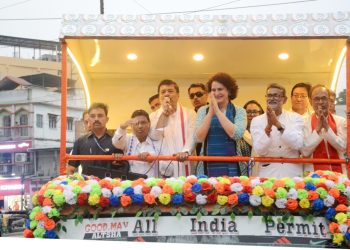Antar Singh Arya, Chairperson of the National Commission for Scheduled Tribes (NCST), Government of India, along with other members of the Commission, called on Tripura Governor Indra Sena Reddy Nallu at Raj Bhavan, Agartala, this evening. The high-level courtesy meeting evolved into a detailed discussion on issues concerning the welfare, development, and rights of the tribal communities in the state, which constitute a significant portion of Tripura’s population.
During the interaction, Governor Nallu extended a warm welcome to Arya and the accompanying NCST delegation, acknowledging the Commission’s pivotal role in safeguarding constitutional protections for Scheduled Tribes across the country. He emphasised that Tripura, with its rich tribal heritage, diverse ethnic composition, and longstanding traditions, has always placed the welfare of indigenous communities at the centre of its development priorities. The Governor expressed hope that greater engagement with national-level bodies like the NCST would further strengthen ongoing initiatives aimed at upliftment, empowerment, and socio-economic progress among tribal citizens.
Chairperson Antar Singh Arya briefed the Governor on the Commission’s current focus areas, including monitoring the implementation of tribal welfare schemes, reviewing protections under the Fifth and Sixth Schedules of the Constitution, and assessing ground-level challenges faced by tribal communities across states. He emphasised that Tripura, with its unique administrative framework under the Tripura Tribal Areas Autonomous District Council (TTAADC), remains an important state for the NCST’s policy review process. Arya stated that the Commission is committed to ensuring that constitutional safeguards for Scheduled Tribes are upheld in full spirit, and that issues relating to land rights, education, livelihood opportunities, and protection of cultural identity receive sustained national attention.
The NCST delegation also apprised the Governor of their observations during their ongoing visit to Tripura, which includes interactions with state officials, autonomous council representatives, community leaders, and tribal organisations. Arya stressed that such field visits enable the Commission to understand practical challenges more comprehensively, ensuring that its recommendations to the central government are grounded in local realities.
Governor Nallu, in response, highlighted several government initiatives aimed at enhancing tribal welfare in Tripura, including infrastructure development in tribal areas, educational support schemes, and measures to preserve indigenous languages and cultural traditions. He also discussed the need for strengthened cooperation between the state government, TTAADC, and central agencies to resolve developmental bottlenecks and address long-standing concerns of tribal communities.
Both sides agreed on the importance of empowering tribal youth through education, skill development, and entrepreneurship opportunities. The Chairperson appreciated the state’s efforts in improving connectivity, healthcare, and access to government services in remote tribal regions, while also sharing the NCST’s recommendations on improving monitoring and implementation mechanisms.
The meeting concluded with a mutual commitment to continued collaboration. Arya thanked the Governor for his hospitality and assured that the National Commission for Scheduled Tribes would continue to extend full support to Tripura in ensuring justice, welfare, and equitable development for its tribal population.


